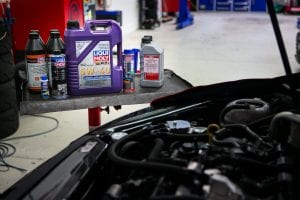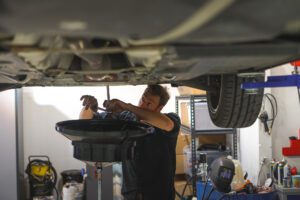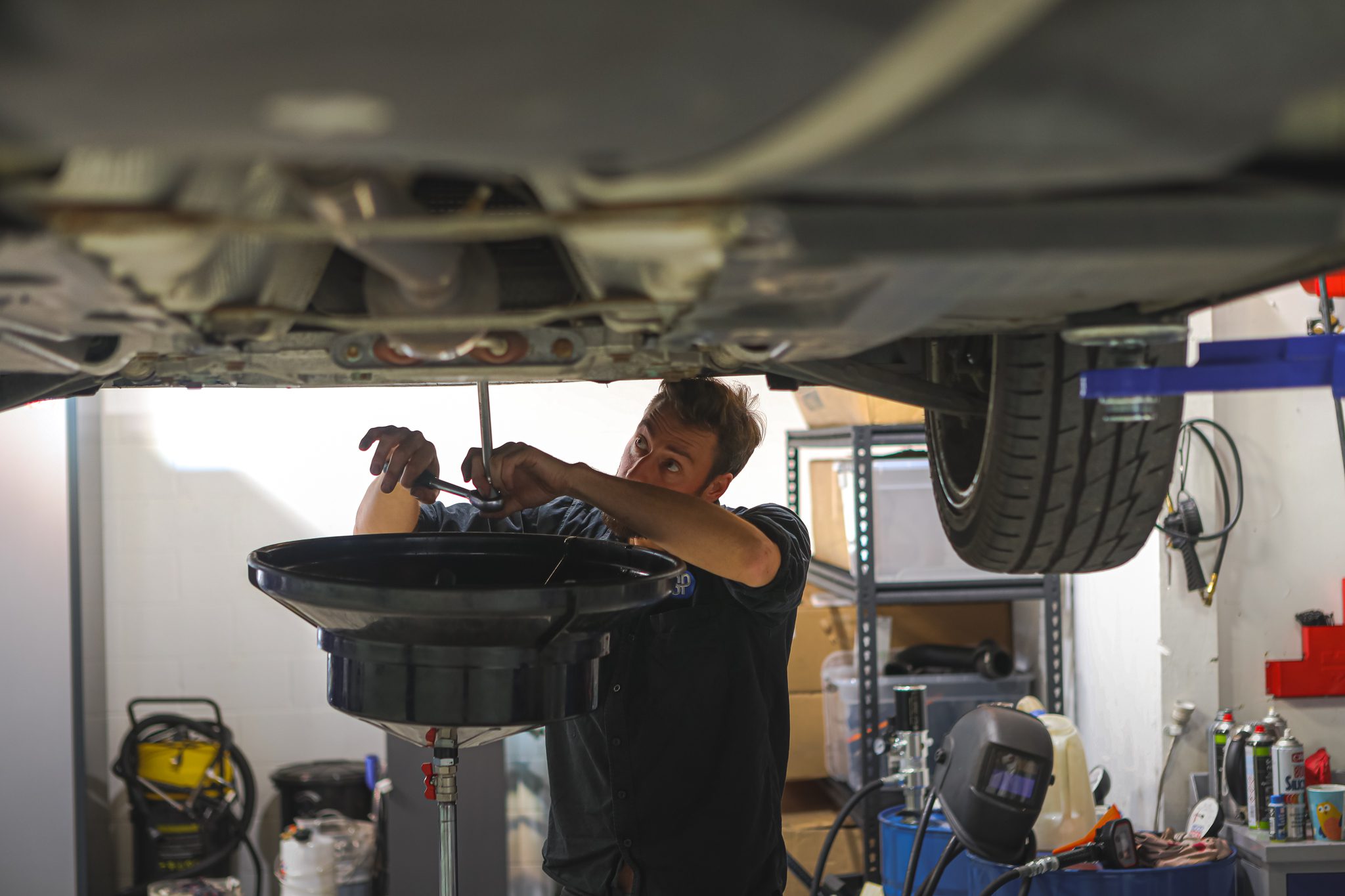What’s involved in a service and why it’s important?
We all know that cars need regular servicing, but not everyone knows the details of what happens and why it needs to. In this post we’ll look briefly at the aspects of what a service should entail, and why.
Oil

Often called an “oil service” or “lube service”, the most important part of a service is replacement of the oil. The oil is what lubricates and cools the moving parts of the engine, applying a thin layer of protection between them to limit wearing. The oil in an engine is subject to extreme temperatures and mechanical force and becomes contaminated over time with the byproducts of combustion that form during normal engine operation: condensation moisture and carbon deposits. Accumulation of these reduces the effectiveness of the oil to maintain that thin protective layer.
It is also suggested that the additives and modifiers found in modern oil (which can make up to 40% of the oil’s volume) can become less effective after extended periods. For these reasons we always recommend oil changes are carried out at least once a year, regardless of how many kms the car has travelled.
Oil Filter
Along with the oil, the oil filter should also be changed. The filter picks up much of the solid contaminants in the oil, compare a new filter with an old one and you’ll see the old filter is black and full of fine solids. If left too long the build up in the filter can eventually limit oil flow and reduce oil pressure – the pressure required to limit wear by keeping all parts of the engine supplied with the protective layer of oil mentioned above.
Other filters, fluids and spark plugs
Along with the oil filter, the other serviceable parts should be checked or cleaned/replaced.
- Engine air filter should be checked for dust loading and cleaned with compressed air or replaced
- Cabin/pollen air filters. As above should be checked and cleaned out or replaced. A fault we occasionally see is a completely blocked cabin filter leading to the AC fan being overloaded and either burning out the fan motor or blowing its fuse.
- Brake fluid should be tested with a hydrometer for moisture content. New fluid is less than 1%, but overtime through constant heat cycles it will absorb moisture and must be replaced once above 4% moisture content.
- Spark Plugs can be visually checked for wear of the electrode, corrosion and evidence of tracking marks on the ceramic insulator to indicate high internal resistance
- Fuel Filter should be periodically replaced, especially on diesel engines.
Underbody Inspection

Generally when driving, we keep an eye on the fuel gauge and maybe the engine temperature. Otherwise, we expect that everything on the car is in good working order. If an issue occurs on one of the cars many systems that are electronically controlled, the car will likely be able to detect a deviation and inform the driver through a warning light on the dash. But there is still much of the car that doesn’t have any sensors to keep an eye on things. Because of this, another crucial aspect of servicing is a thorough inspection of the car’s underbody. This should include checking:
- Tyres for tread depth, even wearing, punctures, correct pressure and damage,
- Brakes for wear, leaks and general safety,
- Suspension for worn/torn/leaking rubber bushes, leaks from shock absorbers
- Exhaust for leaks
- Engine and transmission for oil and coolant leaks, mount security,
- Wheel bearings for play or noise
- Overall car through a test drive, to check for normal operation and help to identify any potential issues
Long term costs/reliability
They say that either you can book time for maintenance, or your car will do it for you [when it breaks down]! By having a professional regularly check over the car, issues can be picked up early and the downstream effects limited. This means the car is off the road when you choose, for less time overall and the cost will be minimised. Eg. an [inexpensive] worn front suspension bush, as well as impacting on driving comfort, will rapidly accelerate tyre wear, and put extra load on the surrounding suspension bushes and steering joints reducing their lifespan. If caught during a service inspection the bush can be replaced before the consequential effects are realised. If not, the bush will still need to be replaced, but so too may the tyre, other bushes, steering rack end and tie rod end etc.
Resale value
When it comes time to move the car on, having good records of regular servicing can help you get the best price. Providing evidence of regular servicing gives the buyer confidence that the car has been looked after and will continue to be reliable under their ownership.
Summary
Even if your car is just used for heading to the shops, or commuting to work and back, it is still a very advanced piece of equipment and needs regular checks and maintenance to keep it working as it should. The oil and filter must be changed at least annually, and on top of this the other filters in the car play vital roles in proper and reliable operation so should be checked and cleaned/replaced periodically. Regular checks can help to catch faults early before subsequent damage is caused and improve the driving experience when you are using the car.
Maintenance is not optional, and doing the right things at the right time will save you money in the long run, improve your driving experience and help uphold a better sale price on the car.
If your Volkswagen, Audi, Skoda, BMW or Mercedes is due for a service, or needs some love, feel free to make a booking through our online booking system: https://my.workshopsoftware.com.au/bookings.html#/SutherlandPerformanceLtd?token=ds6900
or get in touch with us via email on enquiries@sutherlandperformance.co.nz


